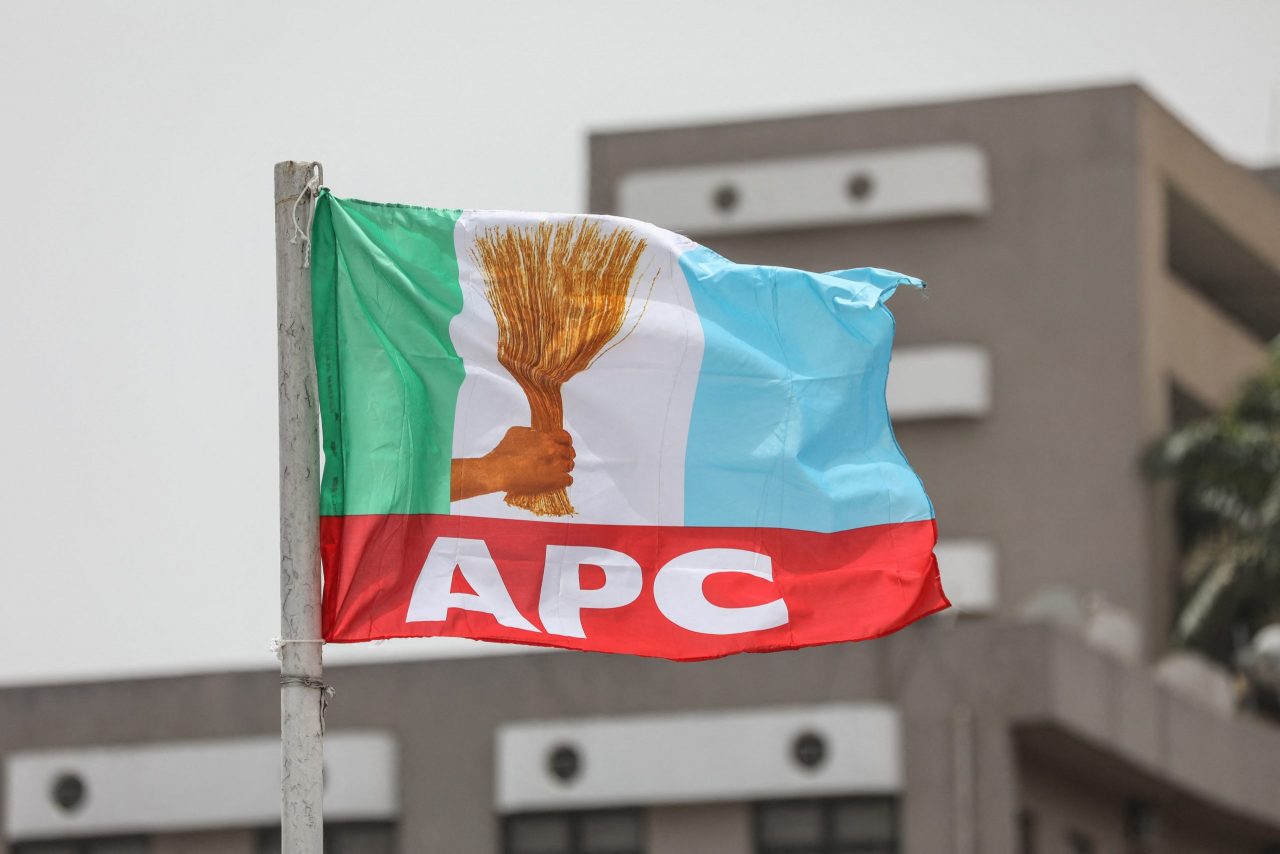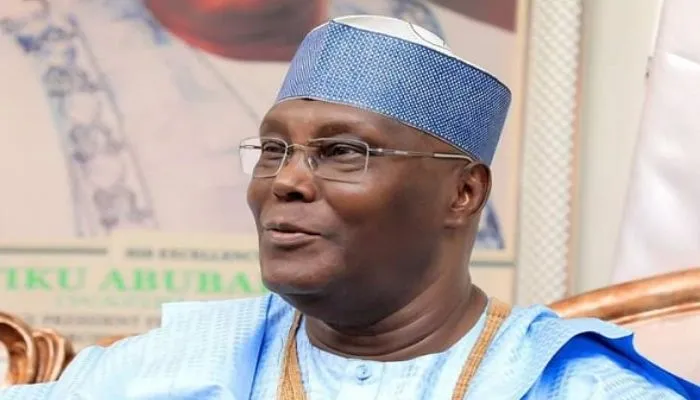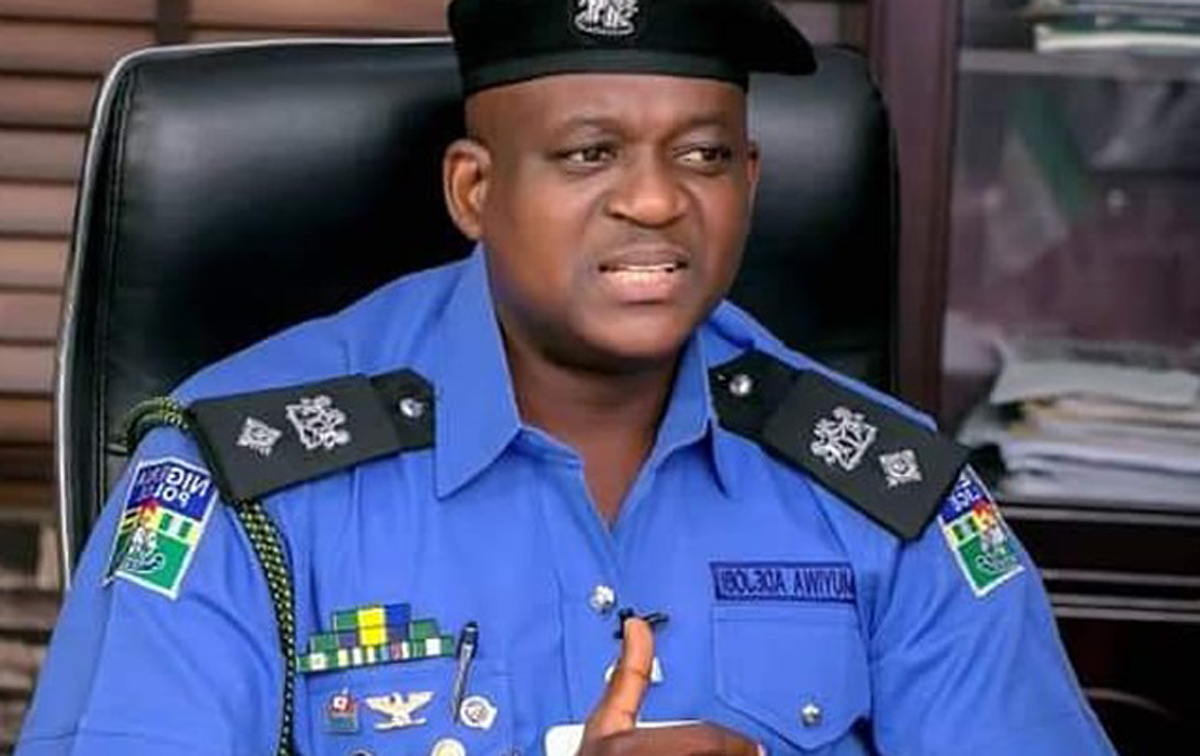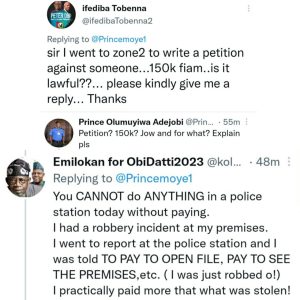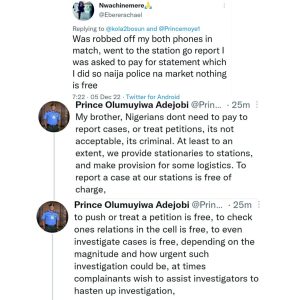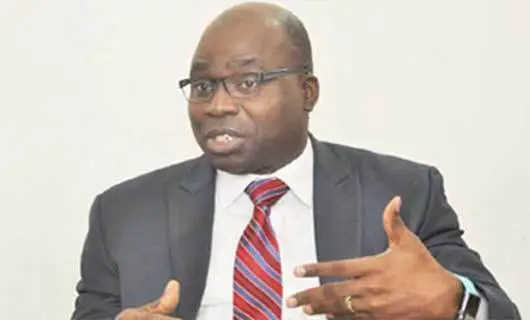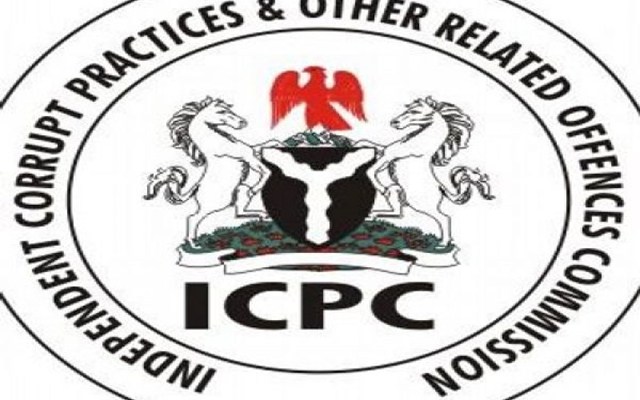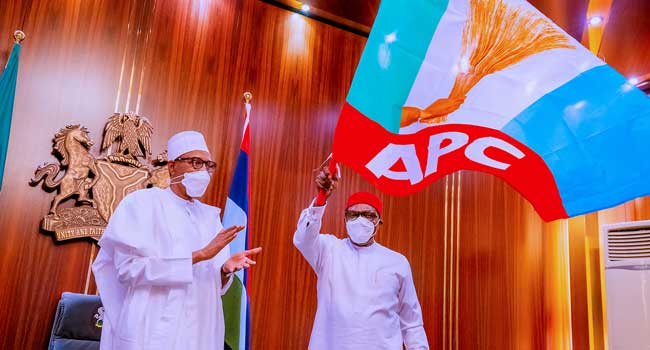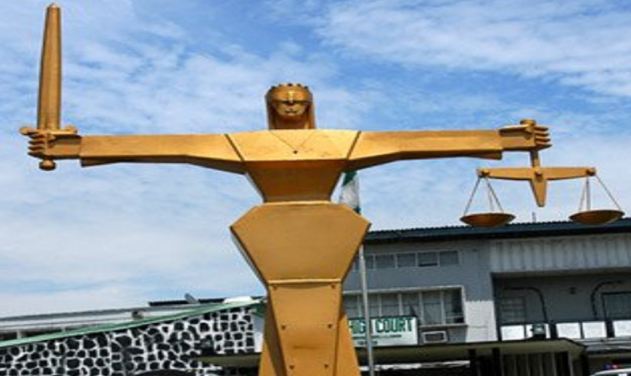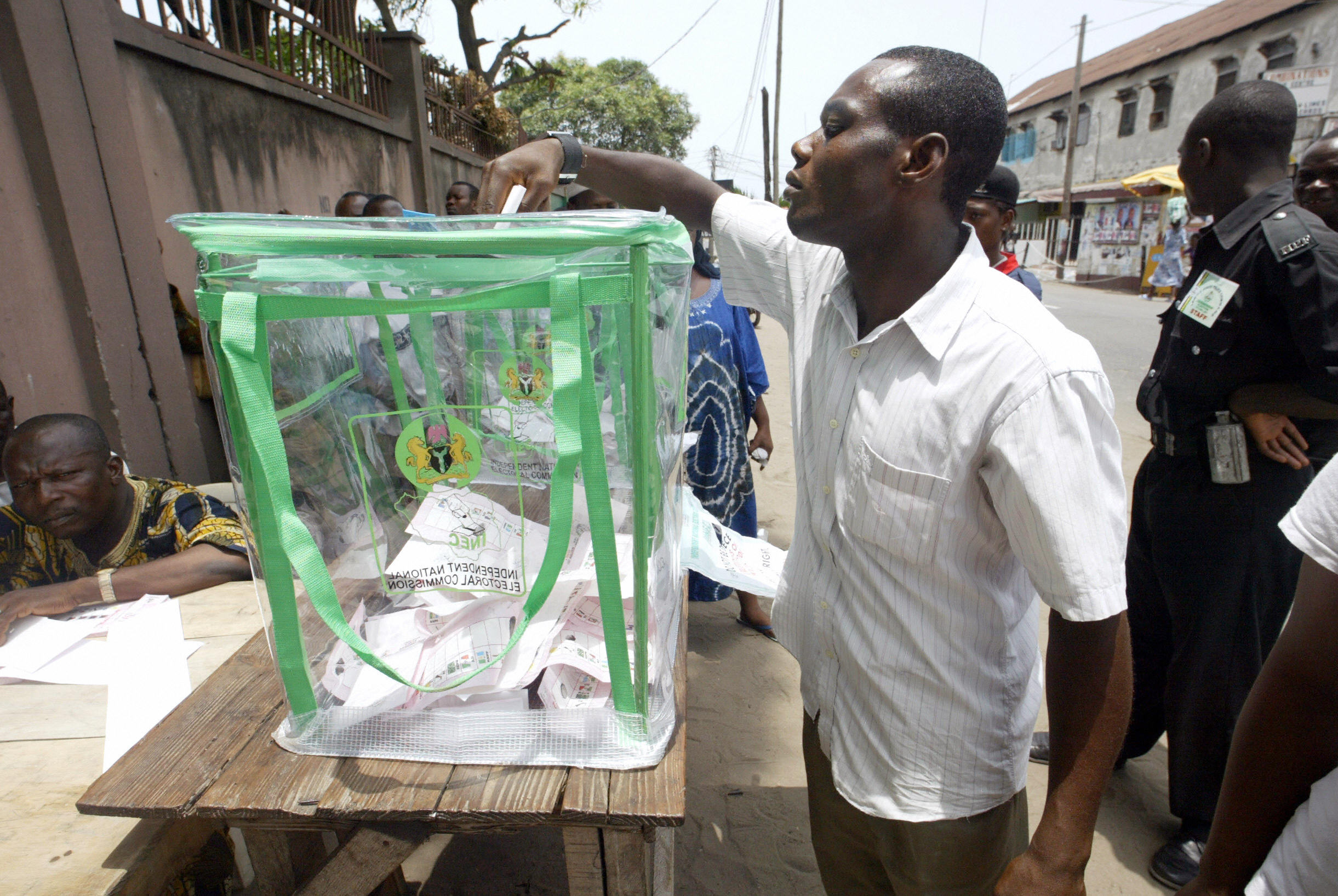The All Progressives Congress (APC) has prayed the Presidential Election Petitions Court (PEPC) in Abuja to dismiss petitions filed by three opposition parties challenging the victory of its presidential candidate, Sen. Bola Tinubu, in the Feb. 25 election.
The APC urged the tribunal to discountenance the petitions, in three separate responses filed at PEPC’s Secretariat, Sunday night, by Thomas Ojo, a member of the party’s legal team led by Lateef Fagbemi, SAN, in Abuja.
The three political parties; Action Alliance (AA), Allied Peoples Movement (APM) and Action People’s Party (APP) had, in separate petitions, challenged the emergence of Tinubu as president-elect.
AA, in the petition, sued the Independent National Electoral Commission (INEC), APC, Tinubu and Hamza Al-Mustapha, its factional presidential candidate and former CSO to late Gen. Sani Abacha.
APM, in its petition, joined INEC, APC, Tinubu, Kashim Shettima and Kabir Masari, who stood as vice-presidential placeholder during the primaries before he was substituted with Shettima.
But APP dragged Tinubu, APC and INEC to court as 1st to 3rd respondents respectively.
In the suits, marked CA/PEPC/01/2023, CA/PEPC/04/2023 and CA/PEPC/02/2023, AA and its presidential candidate, APM and APP are respectively challenging the outcome of the presidential election on the grounds of alleged substantial non-compliance with the electoral laws as well as the INEC guidelines.
While the AA claimed that its candidate, Solomon-David Okanigbuan, was excluded from the presidential poll, based on which the election should be voided, the APM is contending that Tinubu was not qualified to contest the election on the grounds of the alleged double nomination of his vice-presidential candidate.
It is also questioning Tinubu’s candidacy on the grounds of the substitution of the initial placeholder, Kabir Masari, with Shettima.
On its parts, the APP claimed that Tinubu was, at the time of the election, not qualified to contest the poll by virtue of the provisions of Sections 131(c) and 142 of the Constitution and Section 35 of the Electoral Act 2022.
Responding, the APC faulted the claim by the AA that its presidential candidate was excluded from the election, arguing that its known candidate, Mr Al-Mustapha, participated in the election.
It stated that contrary to AA’s claim, Tinubu “was duly elected and returned as the President-elect of the Federal Republic of Nigeria, having won the majority of lawful votes cast in the said election devoid of corrupt practices or vices and in substantial compliance with the provisions of Electoral Act 2022 (as amended).”
It argued that the ground on which the AA brought its petition “is not meritorious and facts in support of
same are not availing to validate the petitioners’ claims and/or purported right to present the instant petition.”
The APC added that Okanigbuan (listed as the 2nd petitioner “is not the 1st petitioner’s (AA’s validly nominated and sponsored candidate to contest the presidential elections held on Feb. 25.
APC also argued that as against the AA’s claim, INEC (listed as the 1st respondent) did not unlawfully exclude Okanigbuan’s name because he was never the lawfully nominated and sponsored candidate of the petitioner, which did not submit his name to INEC as its candidate for the election.
It added that there is no evidence that the AA conducted a valid primary from which Okanigbuan emerged as a candidate, noting that Al-mustapha was the actual candidate of the AA, who was recognised by INEC.
The APC stated that Okanigbuan was not nominated and sponsored by the AA as its candidate to contest the presidential elections, adding that the party “was not and could not have been excluded from the election as it participated in the presidential election with the 4th respondent (Al-mustapha) as its candidate” who participated in the election and scored 14,542 votes.
In its notice of preliminary objection, the APC questioned the competence of the petition, noting that it was based solely on pre-election issues.
It said: “For an election petition to be competent, it must complain against the return and/or election of the winner of the disputed election.
“The instant petition is neither challenging and/or questioning the election of the 2nd and/or 3rd respondent (APC/Tinubu).
“The petition as presently constituted amounts to a pre-election matter of nomination and sponsorship of candidate(s).
“The crux of the petition being the nomination and sponsorship of the 1st petitioner’s candidate is statute barred, having not been commenced within the mandatory 14 days provided for under the Constitution of the Federal Republic of Nigeria 1999;
“Issues of nomination, sponsorship and exclusion of candidates for an election are issues that precede the conduct of an election and are pre-election matters that cannot be raised of canvased before an election
tribunal.
“Facts in support of the petition speak to intra —party issues, pre-election disputes and administrative actions of INEC triable by Federal High Court under Section 285 of the Constitution of the Federal Republic of Nigeria as altered by the 4th Alteration Act and outside the original jurisdiction of the Court of Appeal being a Presidential Election Petition Tribunal.”
Also in its reply, the APC prayed the tribunal to dismiss APM’s petition.
The party, in its preliminary objection equally filed on Sunday, argued that “the petitioner (APM) alone in the absence of its sponsored candidate cannot benefit and did not have any special interest in the election or return of the 3rd respondent (Tinubu) as the winner of the election.
The APC queried the legal capacity of the party to challenging the mode it adopted in nominating its candidate.
The APC argued that since the APM was not a member of the party, it did not know “how it becomes the petitioner’s business how it nominates its candidates.
“The petitioner does not fall under the category of persons that can challenge the internal working operation of the 2nd respondent (APC) regarding the nomination and sponsorship of the 2nd respondent’s candidates for the election.”
The APC equally faulted the competence of the petition by the APP, arguing that the grounds on which it was founded is not sustainable.
It described the petition as frivolous and an attempt to waste the court’s time.
The presidential candidates of Labour Party (LP), Mr Peter Obi, and his Peoples Democratic Party (PDP)’s counterpart, Atiku Abubakar, are also challenging the election.
Tinubu and Shettima, the vice president-elect, are, however, within time to respond to all the petitions.
Based on provisions of the law, a respondent has within 21 days to reply to a petition after a service.
